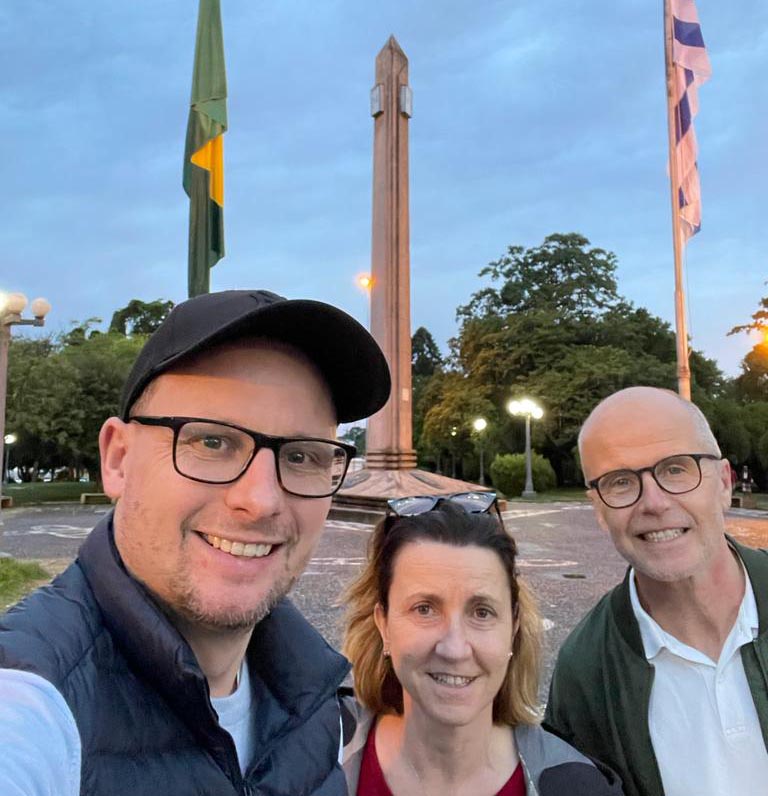Montevideo, 10 March 2022 – A neat playground outside, surrounded by soft green grass. Immaculate white walls leading into a wide entrance hall. The sound of at least a dozen children’s voices in the background, chatting and humming. Would you have thought that we are in a school in Latin America – in Uruguay, to be more precise? The new building might not fit stereotypes which for some might come to mind thinking about Latin America. Yet Uruguay surprises its visitors with a remarkable modern school infrastructure.
As the smallest Spanish-speaking country in South America, Uruguay borders Brazil to the north, the Atlantic Ocean to the east, the Río de la Plata to the south, and Argentina to the west, separated by the Río Uruguay. Starting in summer 2018, TA Europe continues to be involved in a PPP project known by the Spanish name “Infraestructura Educativas”, comprising three comprehensive social infrastructure projects in Uruguay, Latin America, led by Mercedes Martín.
“Educativas 1 is the most comprehensive project with 59 buildings”, explains Mercedes Martín, “and includes 44 Jardines (for 3 to 6 year-olds) and 15 kinder gardens in different locations all over Uruguay. Educativas 2 comprises 23 primary schools, 9 Polos Tecnológicos – technological training centres – and 10 sports centres. Educativas 3, finally, consists of 15 primary schools and 27 kinder gardens.” So in total, TA Europe monitors 143 objects.
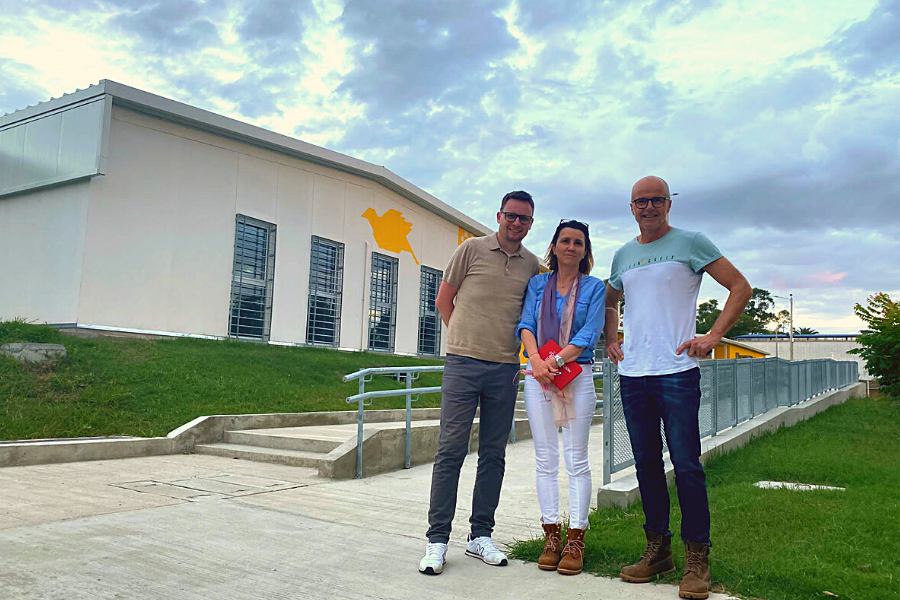
The sheer numbers give an impression of the enormous scale of this project. The setup is a PPP structure, which the Corporación Andina de Fomento, the Corporación Nacional Financiera Administradora de Fondos de Inversión and the Banco Interamericano de Desarrollo provided the financing for. Within this structure, TA Europe has been commissioned as the Technical Advisor to carry out the technical due diligence and is now responsible for both the construction monitoring and operation monitoring of all the sites.
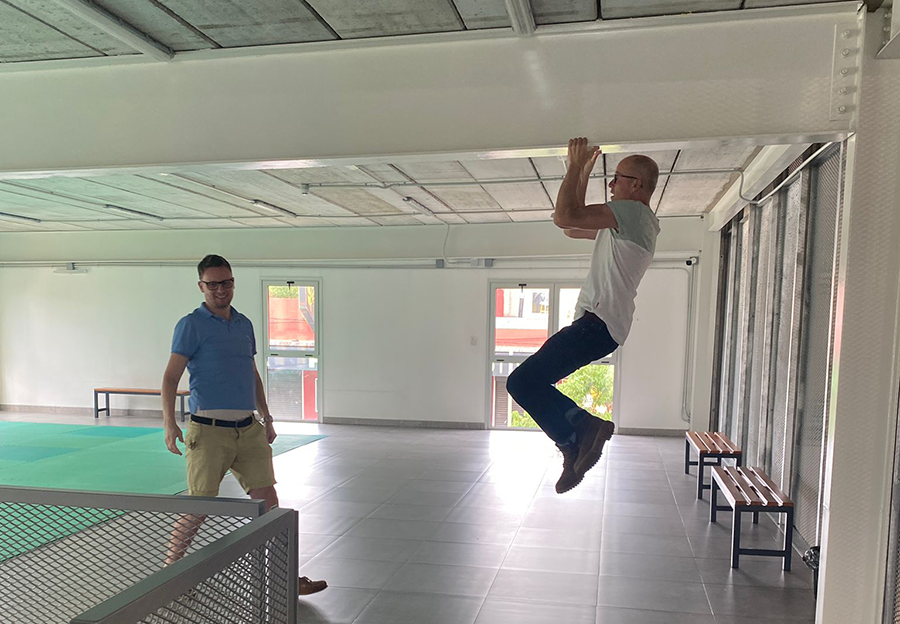
Proof of stability according to VDI 6200 – TA Europe’s CEO Wolfgang Schlicht checks the school building’s stability in person 😉 .
Wolfgang Schlicht and Sebastian Frohwann, both managing partners at TA Europe, are currently in Uruguay to witness the project’s progression. After having completed half of their planned trip through the country, Sebastian says: “Due to our trip, in which we have learnt and are still learning so much about the local people and culture, we also can now much better understand the remarkable value of these projects and the positive impact on the people in Uruguay. The schools are predominantly being built in areas which did not have access or only limited access to education, so this is really about enabling children around the country to have access to the right environment to receive the best education.”
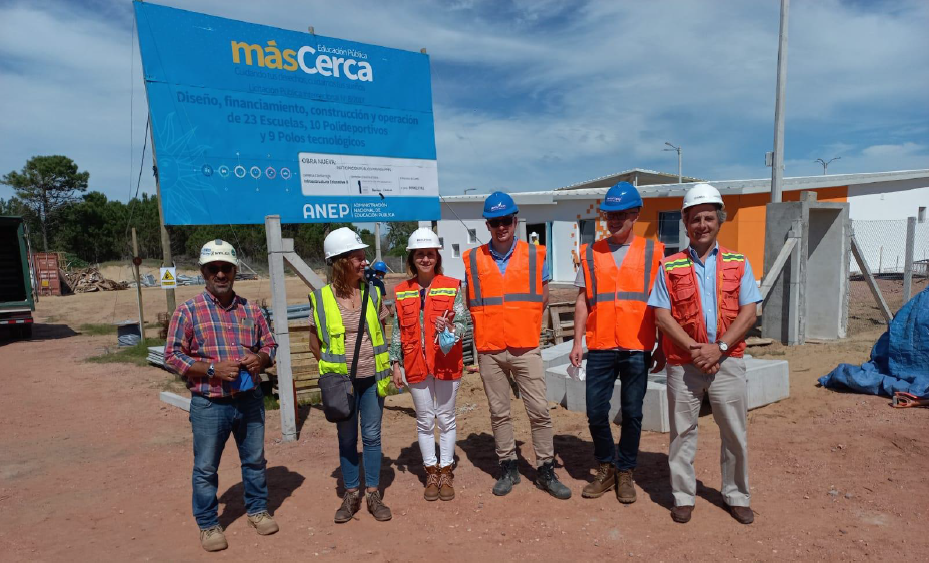
“Not many people in Western countries are aware that the Uruguay government has excelled in providing political stability as well as business-friendly policies and has been promoting access to education widely”, adds Wolfgang Schlicht. “In 2006, Uruguay started and continued a policy providing a laptop to each student. That also made remote learning easier during Covid-19 times – and Uruguay even mastered the pandemic far better than many of its neighbors.”
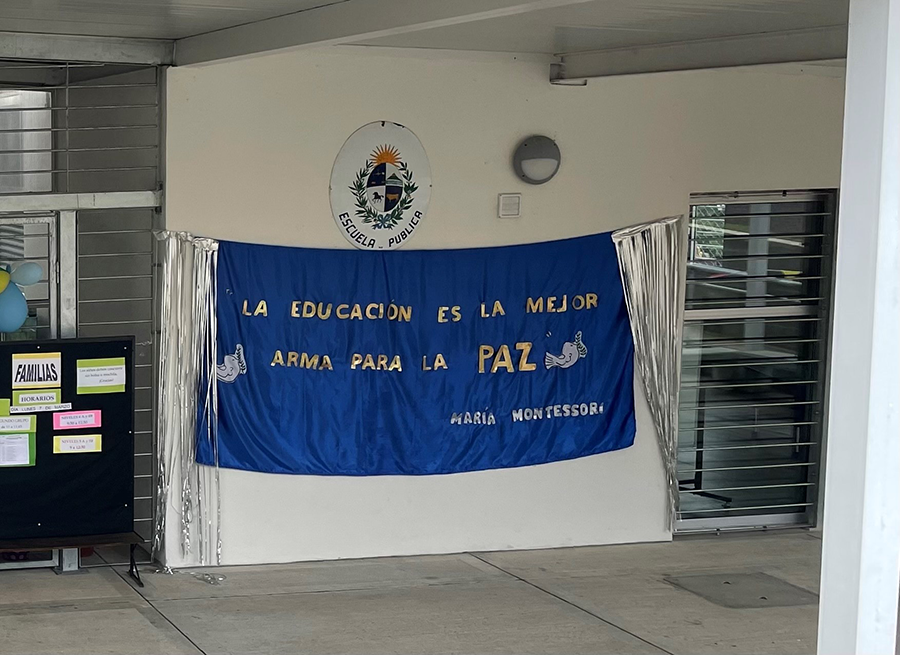
“I am personally very happy that the Uruguay government provided the political and legal framework which makes it possible for us to drive forward these projects”, says Mercedes Martín. “To sum it up, it is amazing to see how the projects are moving forward – that is very satisfying. The nicest reward, of course, is to see how curious and happy the children are about the space we are providing.”
Follow us on LinkedIn and Instagram to learn more about our social infrastructure activities in Uruguay and beyond.
